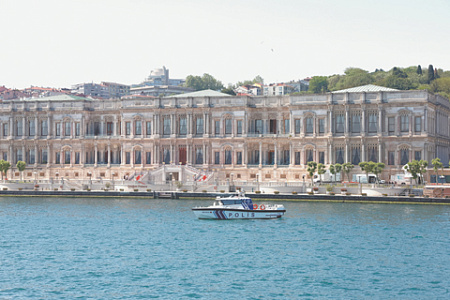
Russian and Ukrainian delegations have convened in Istanbul for a new round of negotiations, marking the first such meeting since U.S. President Donald Trump issued a 50-day ultimatum for Moscow to cease hostilities. The high-stakes talks, held at the historic Ciragan Palace, are proceeding under the shadow of a potential escalation in American economic pressure, yet both sides appear to be holding firm to their established positions.
Washington has amplified the pressure by clarifying the terms of its warning. A State Department spokesperson explained that President Trump is not bound by a specific date, reserving the right to impose punitive secondary tariffs on buyers of Russian energy at any point within the 50-day window if he concludes that Moscow is not engaging in the peace process in good faith. This threat, however, seems to have had little immediate impact on the agenda for either Kyiv or Moscow.
For Ukraine, the priorities remain clear and focused on immediate humanitarian concerns and a top-level diplomatic resolution. President Volodymyr Zelenskyy has emphasized the need to discuss a prisoner of war exchange, the return of Ukrainian children who were transferred to Russia, and the organization of a direct meeting between himself and Russian President Vladimir Putin. The Ukrainian leadership continues to assert that a meaningful breakthrough can only be achieved through direct presidential dialogue.
In contrast, Russia’s focus remains on the foundational documents of a potential settlement. The Kremlin has stated its intention to discuss draft memorandums exchanged in previous rounds, which it views as the essential groundwork for any future presidential summit. These Russian proposals reportedly contain extensive demands, including the withdrawal of Ukrainian troops from several key regions, a halt to foreign military aid, new elections, and constitutional guarantees for Ukraine’s non-aligned and non-nuclear status—terms Kyiv has previously decried as an unacceptable ultimatum.
This fundamental divergence in approach—Ukraine’s push for a leaders’ summit versus Russia’s insistence on finalizing detailed agreements first—remains the central deadlock. The delegations themselves reflect a degree of continuity, with Vladimir Medinsky continuing to lead for Russia and Rustem Umerov, newly appointed as Secretary of Ukraine’s National Security and Defense Council, heading the Ukrainian team. As the negotiations commenced, the prospect of bridging the vast gap between the two sides’ positions remained uncertain.
